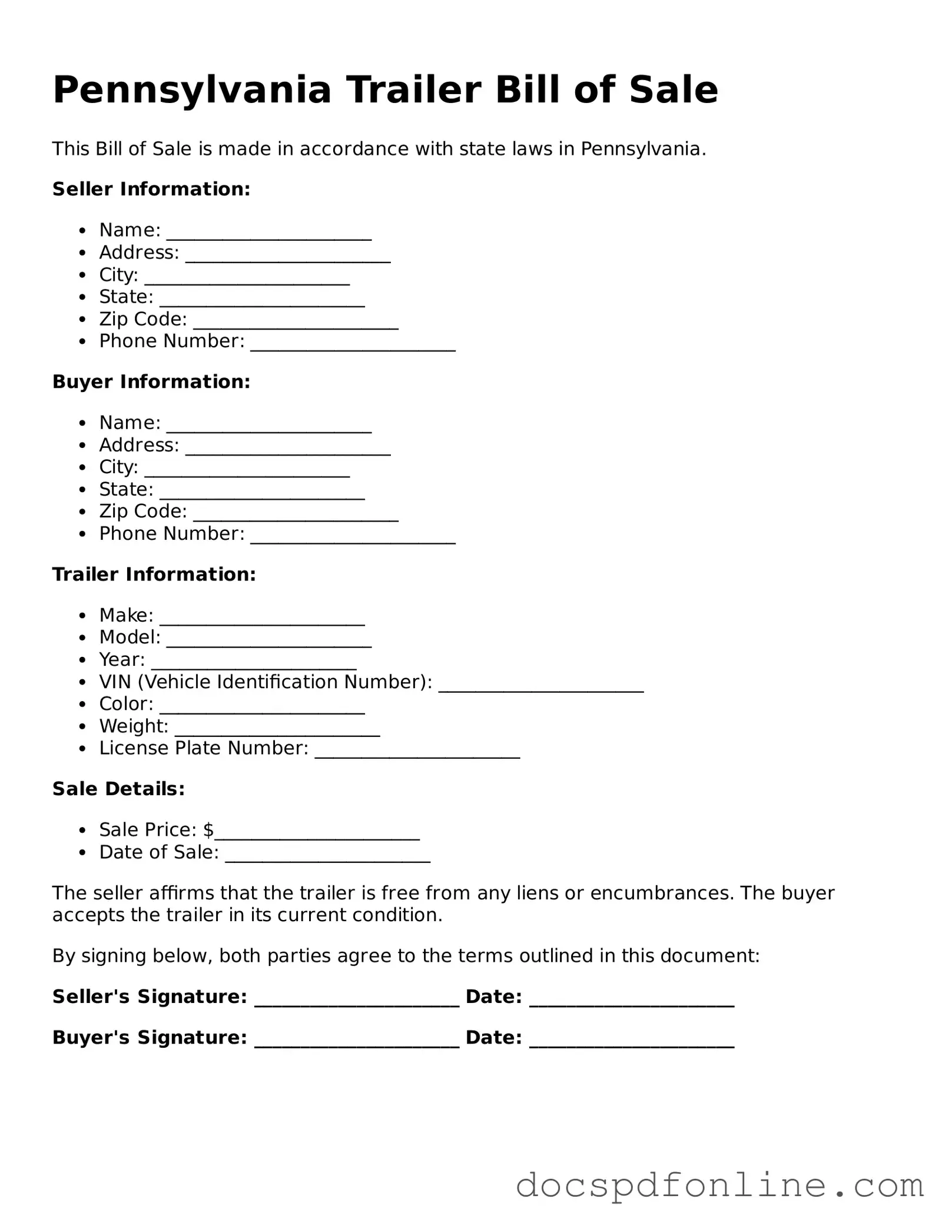Legal Trailer Bill of Sale Template for Pennsylvania
The Pennsylvania Trailer Bill of Sale form serves as a crucial document for individuals transferring ownership of a trailer in the state of Pennsylvania. This form provides essential details about the transaction, including the identities of the buyer and seller, trailer specifications, and the sale price. Properly completing this document ensures a smooth transfer of ownership and protects both parties involved.
Launch Editor Now

Legal Trailer Bill of Sale Template for Pennsylvania
Launch Editor Now
Save time — finish this form fast
Finish Trailer Bill of Sale online — edit, save, download made easy.
Launch Editor Now
or
↓ PDF File
